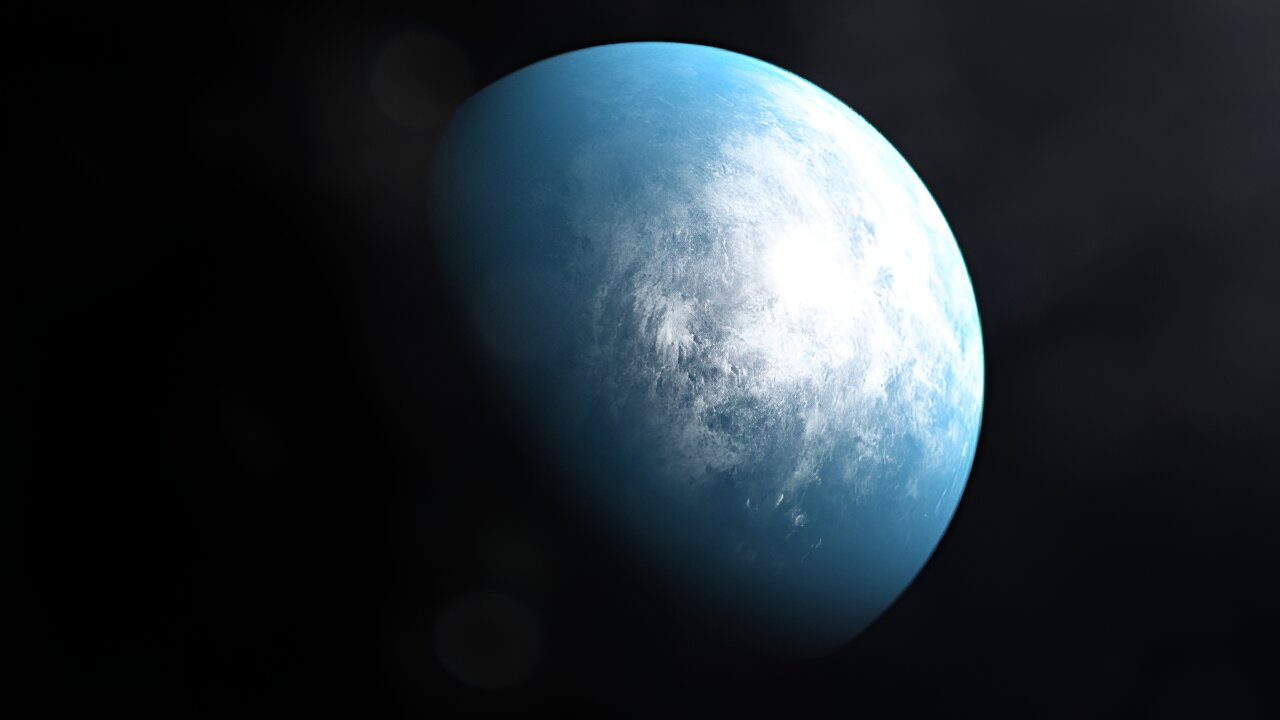A planet relatively close to Earth could be the first ever detected with a potentially life-sustaining liquid ocean outside our Solar System, according to scientists using the James Webb space telescope.
More than 5,000 planets have been discovered outside of the Solar System so far, but only a handful are in what is called the “Goldilocks zone” — neither too hot or too cold — that could host liquid water, a key ingredient for life.
The exoplanet LHS 1140 b is one of the few in this habitable zone, and has been thoroughly scrutinized since it was first discovered in 2017.
It sits 48 light years from Earth, which equates to more than 450 trillion kilometers (280 trillion miles) — relatively close in the vast distances of space.
The exoplanet had been thought to be a small gas giant called a “mini-Neptune” with an atmosphere too thick with hydrogen and helium to support alien life.
However, new observations from the Webb telescope have confirmed that the exoplanet is in fact a rocky “super-Earth”.
It is 1.7 times bigger than Earth, but has 5.6 times its mass.
48 light years sounds close until you realise you aren’t even 48 years old and the whole time you started existing and another few years on top you should constantly traveling at the speed of light without being destroyed.
If we can’t use wormholes we are doomed to stay in this system
Wormholes, as well as other ftl systems, are almost certainly impossible. The universe seems very strict about causality. A good number of random bits of physics seem arbitrary until you realise they sit at the limit of causality violations. All FTL systems can be used to violate causality.
Unfortunately we are likely stuck at SoL limits. We could still make it to the stars, but it would be a generational effort.
I think living amd dying on a anywhere-bound generation ship is sounding better by the day. I have sommany indie tabletop RPGs to play with people
5.6 times the mass = Humans couldn’t live on it even if we could reach it. An 85kg person (187 freedom units) would weigh 476kg or 1047pounderoos. You wouldn’t be able to move and barely breath. Your body would give out.
Oh, and the gravity well would be insurmountable to any technology we have today. So you’d never get off the planet once you got there (and died swiftly).
Killjoy…
F = (G₁G₂)/r²
You forgot the r
CRaaaap! my bad
Oh, and the gravity well would be insurmountable to any technology we have today. So you’d never get off the planet once you got there (and died swiftly).
Which likely means that anything that highly evolves there is trapped on the planet too, not even considering the extra weight requirements for them to take their water environment into space (assuming they’re marine creatures).
The density of the planet indicates that it “actually has large quantities of water,” study co-author Martin Turbet of France’s CNRS scientific research center told AFP.
How can you tell it’s water from the density? I get that they can approximate the density of it from its size and gravitational effect, but surely any number of things (counting blended materials) have the same density as water.
Aren’t they looking at the light instead of gravitational interaction to guess the nature of a celestial body? Like chromatography but slightly further way from?
Let’s call it water world, yes?
I agree with you. Ready to sign the petition for this ?





